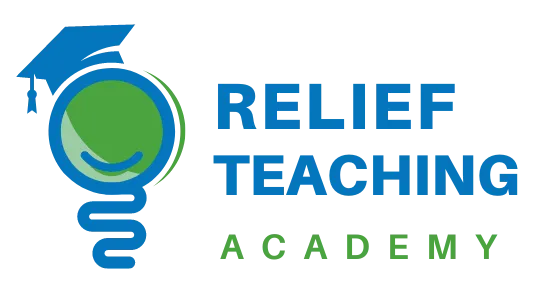Latest Academy Blogs
Select article category or search for specific article:

Five Unlikely Skills to Help Progress Your Education Career
"Without continual growth and progress, such words as improvement, achievement, and success have no meaning." - Benjamin Franklin
Influences from outside the school setting
Developing skills outside the realm of education is an important part of developing your career. There are many qualities that seem to be universally desired by hiring schools, particularly when they are considering candidates for leadership positions. It is important to continue your development as it will help demonstrate your desire for growth and an understanding that the world of education is changing.
What are transferable skills?
Transferable skills are behaviours, knowledge and abilities that can apply to any part of your education leadership role. Most soft skills are transferable because they relate to direct interactions with students, parents and colleagues. Though they are called ‘soft skills’ they are often extremely hard to develop and implement as they rely personal interactions and relate closely to a person’s character. This might be why employing schools seek out leadership candidates with transferable soft skills as they show that the applicant is flexible, adaptable and recognises the importance of positive interpersonal relationships.
My view of the Top 5 transferable soft skills
#1 – Public speaking
Public speaking is often cited as one of people’s top-3 greatest fears! It is critically important for both current and potential leaders to effectively communicate their message in front of various stakeholders. Speaking in public is a different skill to speaking in front of a classroom as it can often contain many subtle objectives including to educate, entertain or influence the listeners. You never know when you might need to speak in public at a school setting, so it is important to gain the knowledge early and approach the opportunity with confidence. Key steps to public speaking include:
Defining the objective of the presentation
Preparing the speech
Practicing the speech
Preparing the presentation slides or props
Giving the speech
#2 – Negotiation
Some teachers say that every day requires negotiation with students! However, developing their negotiating skills can be very important before taking that next step into leadership. It is said that negotiation skills can help boost productivity, reduce workplace conflicts, increases your creative and reasoning abilities, and make it more difficult for others to take advantage of you. Remember, the goal of negotiation is to arrive at a mutually beneficial outcome for all parties. Key parts in the negotiation process include:
Preparation
Discussion
Clarification of Goals
Moving toward an Outcome
Agreement and implementation
#3 – Performance management
Effective performance management skills are often one of the most underdeveloped skills in leadership today. Its key role is to help boost staff engagement, productivity, performance, retention and creating a position workplace culture.
The key to any performance management process is for leaders to be regularly checking in with their teams, making a conscious effort to identify problems as the arise, and keeping everyone on course. This is required through both structured performance reviews and unstructured casual conversations. One thing is certain – leaders who bury their head in the sand and do not conduct crucial conversations are destined to experience a world of pain. Tips to assist with performance management:
Go early! Tackle the issue straight away and provide an opportunity for the person to improve
Be able to name the behaviour or outcome that is causing the problem. Being vague or unclear to protect feelings will not help here.
Stick to the point. Don’t bring in extra issues to the one at hand and don’t allow the ‘blame game’ to railroad or skew the conversation. It is commonplace for staff when confronted to highlight other team members who they believe might do the same thing. Stick to the point!
Agree on an outcome. What is the expected change of behaviour or results and make sure that both parties are clear.
Move on. Be objective once again and trust that the staff member will rectify the problem.
BONUS TIP – don’t let someone off the hook if they don’t improve. Again, tackle the problem early and be sure the objective is mutually understood. In this circumstance it is prudent to also explain the consequence if the person does not change their behaviour or performance (e.g. formal performance management meeting)
#4 – Chairing a meeting
To chair a meeting is to facilitate a discussion – that is why it is a critical skill to learn. As a facilitator in any meeting, you will make sure that every issue that was planned to be discussed is discussed. It is critical to monitor that everyone’s views are heard and that clear decisions are reached. That a meeting starts and finishes on time.
A good chair will always be thinking about the meeting overall and not just the topic being discussed. The best advice I ever received regarding chairing was the importance of speaking last – sometimes simply to wrap up and summarise the outcome.
#5 – Strategic skills
A big part of the education industry is strategy – having to plan weeks, months, even years ahead. The role of an educational leader is to be assessing the current strategy, looking for ways to improve it, and predicting issues down the road. Understanding priorities and having the research skills necessary to understand situations in depth. Key skills to develop as part of strategic planning include:
Critical thinking
Decision making
Scenario planning
Project management
Tracking industry trends
Marketing
Stand out and succeed! Developing additional skills outside of the Education Sector will pay dividends to productivity, performance, and employability throughout a career. This list may even be a perfect guide to help develop or mentor an educator seeking a leadership position.

CLICK HERE to find out more about joining the Relief Teaching Academy
Subscribe to get up to date tips, strategies, resources and guidance on all things relief teaching.
Relief Teaching Academy is a service of EPC Capital Pty Ltd.
© Copyright 2023. EPC Capital Pty Ltd. All rights reserved.
Send us a message

